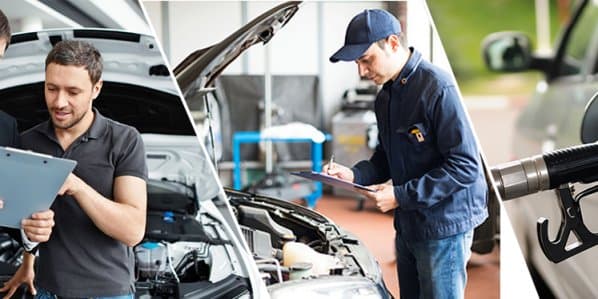When you’re looking to buy used car, the process can feel overwhelming at first. Between deciding on the type of used car that suits your needs, narrowing down your manufacturer and model choices, hunting for dealerships, and haggling over prices – it’s no wonder so many people dread the thought of buying a used car.
Fortunately, there are many ways to make the process much less painful, such as reading a used car buying guide (like this one). The more research you do on ‘what to look for when buying a used hyundai car,’ the easier it will be to get a fair deal on the budget. However, not everyone knows what they should look out for when buying a car. There are plenty of common pitfalls that most new car buyers fall into at some point – we’ve listed 12 Things to Look for When Buying a Used Car. We hope you found your information on ‘What to Look for When Buying a Used Car’.
12 Things to Look for When Buying a Used Car.
1. Not having a firm budget in mind:
The first lesson from our Used Car Buying Guide is to have a fixed budget before looking up online used cars. If you do not have a proper budget, you may spend more money on automobiles than you meant. Make a budget first, and then look for the car you desire.
2. Being too inflexible with the car you want:
It is feasible for someone to get enamored with a certain car given on a specific day, but not to the point of meeting their wants regularly. When buying a used car, deciding on your purpose and specs before purchasing a car is vital.
3. Not taking cars for test drives:
Buyers of cars typically take a test drive to evaluate the capabilities of new cars. However, secondhand automobiles must be inspected to ensure everything is in working order. It is rare for individuals to forgo a test drive or for a vendor to refuse to provide. It is vital to take a test drive whether the car is new or not given.
4. Without thinking about how much gas it will need:
Many people who are shopping for used chevrolet cars make the mistake of paying little attention to the vehicle’s gas mileage.
5. Letting your emotions dictate your decision.
If you fall in love with a vehicle, take your time to ensure it is the right vehicle for you. Every purchase we make as humans is emotional, whether we realize it or not. It is normally preferable to purchase a used model of a car with a proven track record of quality and dependability rather than a brand-new model of different cars that may be less trustworthy.
6. Figure out finances in advance:
Before you start out looking for an online used car, you need to figure out how you’ll pay for it. This is true regardless of where you plan on making your purchase. You may either pay for it entirely out of pocket, or you can get a loan to do so. Be extremely cautious if you take out a loan since they often have much higher interest rates.
7. Purchasing unnecessary extras
You should not pay for extraneous services and expenses while buying a used car. Simply mark off any items on the bill of sale you do not accept and refuse to pay for. The car bodies have previously been rust-proofed. Although rust may be an issue in newer automobiles, current CR dependability studies show little sign of it.
8. Not double-checking the insurance documents.
If you have a shortlist of possible vehicles, you may verify their insurance coverage by examining their policy documentation. If you want to handle the insurance premiums on your own, purchasing a used vehicle with a longer policy term is another option. You can get your finances in order by the time you need to file a claim after buying a secondhand automobile with an expired insurance policy.
9. Not having a third-party mechanic inspect a secondhand vehicle.
The condition of a used automobile is essential in this purchase. If you don’t take care of your car, it might quickly lose its reliability. Seek a written report outlining the car’s condition, including a breakdown of any defects and the estimated cost of fixing them. You’ll have the report to refer to your subsequent price talks with the vendor.
10. Having a weak spot and giving in to peer pressure:
Don’t give in to the idea that you need a flashier vehicle than your friends and neighbors. Your purchases should meet your wants, interests, and financial capabilities. There will be differences in their income, consumption, and preferences from yours.
11. Buying from a dealership without checking its rep beforehand.
Before buying a used automobile from a dealer, it’s wise to find out how reputable they are. You should research online to find out how long the dealership has been in business. You can do your research via the dealer’s Facebook page, google reviews. The Better Business Bureau (BBB) may also provide information about consumer complaints. Customer reviews form the basis of BBB ratings.
12. Not wanting to leave for another dealership.
Customers that keep their choices open and visit different dealerships are in a far better position to bargain. Shopping around will make you feel more at ease going away if the discussion does not go as planned.
Conclusion
The process of purchasing a car can be daunting, especially when buying from someone you’ve never met. Fortunately, many options are available to anyone who wants to buy a new or used car. These options include online car shopping, having a loan pre-approved through a major credit union, obtaining financing through a local bank, and much more. In short do a thorough research your end and select the dealership that can offer you the best deal.

